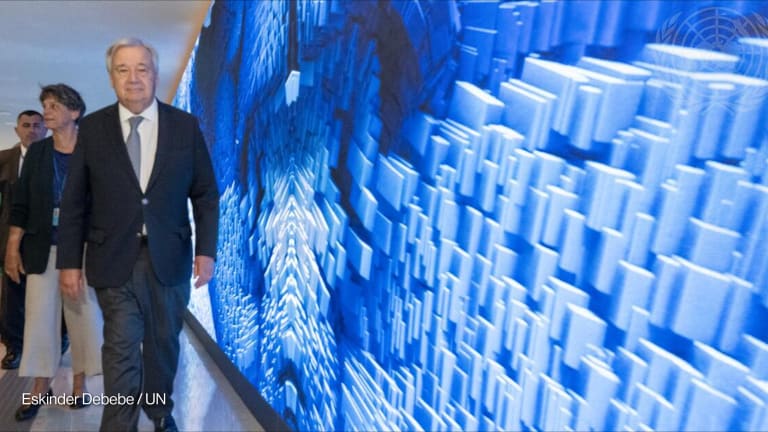
CANBERRA — The three days of discussion, debate, and strategizing as part of the United Nations Working Group on Big Data and Digital Ecosystem for the Planet was described by participants as “chaotic,” as the agenda was thrown out to prioritize new areas of discussion.
The working group hosted its second meeting in Canberra on Nov. 6-8 as part of GEO Week, bringing together government, multilateral, not-for-profit, research, and private sector organizations to understand the gaps in environmental data and how big data, artificial intelligence, and open source solutions could be leveraged to fill those gaps.
Managed by the United Nations Environment Programme as part of its Science-Policy-Business Forum, the working group aims to assist UNEP with its mandate to develop a long-term strategy for the collection, storing, sharing, access, and use of global environmental data using the latest technologies. Its objectives include harnessing the ongoing data and technology revolution, and catalyzing the deployment of technologies, and financing innovative business models to achieve their data goals.
But despite the willingness for the group to step up, head of the U.N. Science-Policy-Business Forum Shereen Zorba needed to bring down some of the excitement at the conclusion of the three days. The first two working groups, she said, had been ad hoc to determine the level of interest from external groups with two more similar meetings planned. As the interest was successfully identified, the group needed to move to a more formalized process within the U.N. system.
Private sector on a 'journey' to engagement with the SDGs
Where does business engagement with the Sustainable Development Goals stand? Here's what Devex found.
“If you want member states to take you seriously, you need to build credibility,” she said. And that meant ensuring the group operated within the financial and accountability requirements of the U.N. to build the support it needed to deliver sustainable and widely used solutions.
The barriers between the UN system and the private sector
For members of the working group, there was a lack of understanding of the U.N. system that created barriers for their recommendations.
Four areas of work were identified by participants as priorities for the working group — securing and sustaining finance, accelerating impact, understanding and consolidating programs and resourcing, and developing rapid type prototype models. The ideas for targeting these objectives would potentially create “more red tape” within the U.N. system, Zorba suggested, that “already had enough red tape.” And delivering clear and concise recommendations that were tied to the objectives of the U.N. also posed a challenge.
The need to keep the momentum going to deliver action and outcomes was seen by participants of the working group as a priority. But as it moved into a formalized structure within the U.N. system, Zorba explained that not all participants would have an official role in the group.
Still, there were other ways they could influence and deliver support for the UNEP’s big data and digital ecosystem work.
Dr. Gilberto Câmara, secretariat director of Group on Earth Observations, said organizations such as GEO played an important role in giving UNEP the time it needed to work within the required structures — and enable member countries to create links to the private sector to test and trial solutions.
“Before people make a decision on technology, they have to use it,” Câmara said.
Through GEO’s engagement with the private sector, it was enabling members access to a range of tools and services such as Google Earth Engine that could help them make informed decisions on how new products and services could support their objectives — including in the area of big data.
More in-depth coverage for Pro subscribers: A look at UNDP's private sector strategy
UNDP is adapting its approach to engaging and working with the private sector. The agency has a new strategy and an administrator who believes engagement with businesses of all sizes has to be part of its future.
Partnerships with Google and Amazon were announced at GEO Week and Câmara expected that this would lead to cascading offers of partnerships from other organizations such as Huawei who would “want to come to the party.”
“It doesn’t mean endorsement,” he said. “But we know these opportunities need to be provided so countries can make informed decisions.”
Importantly this engagement, Câmara said, helped countries understand and plan how they could move beyond goodwill into action on important environmental decisions that would help deliver on the SDGs.
Moving the work forward
Concluding the working group meeting, Zorba said that the momentum had been established to move forward in developing a set of actions — and it would be working in collaboration with GEO to put forward nominations for an official working group.
But she also said that the ad hoc meetings would continue online and in-person as this was faster at bringing partnerships together — which was critical to the success of the work.
“The system does work,” Zorba said. “It just takes a little time to get there.”








